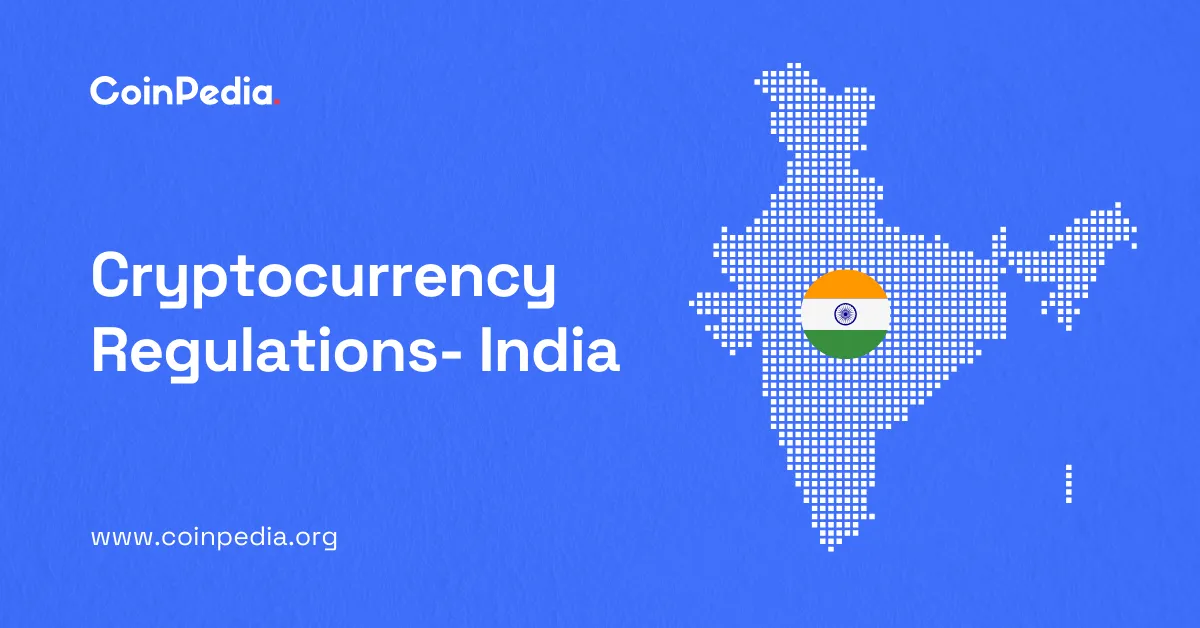
India’s cryptocurrency landscape in 2025 remains a mix of cautious regulation and rapid adoption. While cryptocurrencies like Bitcoin are not recognized as legal tender, they operate in a regulatory grey area with evolving tax and compliance frameworks. Over 107 million Indians now engage with crypto assets.
Below is a timeline of key crypto regulation updates in India during 2025,
July 7, 2025: Bybit Imposes 18% GST
Bybit imposed an 18% GST on all crypto transfers of – spot and margin trading, derivatives, fiat-related transactions, withdrawals, and stakings. Additionally, it also launched the termination of some legacy products and services on July 9, 2025.
June 2025: Discussion paper on Cryptocurrency
The Indian government planned to release a discussion paper to establish a regulatory framework for crypto in India. The initiative also promised to seek public consultation on– stakeholders, including financial institutions, legal experts, crypto companies, and the general public.
May 22, 2025: FSB Peer Review Preparation
India gears up for the Financial Stability Board (FSB) review in October, aiming to align local crypto regulation with global regulatory standards.
April 1, 2025: SEBI Oversight Begins
SEBI starts monitoring crypto tokens that resemble securities. A multi-agency regulatory model is proposed, including RBI, SEBI, and the Finance Ministry.
February 13, 2025:VDA Income Tax Amendment Bill Introduced
The bill expands the scope of Virtual Digital Assets (VDAs) to include NFTs and undisclosed income. However, the 30% tax rate remains unchanged.
February 10, 2025: Crypto Exchanges Declared Reporting Entities
Exchanges, wallets, and even mining pools are categorized as “reporting entities.” They must report all transactions to tax authorities under the new AML
As of now, no official reduction has been made to the 30% tax on crypto gains or the 1% TDS, despite industry demands.
Example: Buy BTC at ₹2.72 lakh → Sell at ₹8.72 lakh → ₹6 lakh profit → Tax = ₹1.8 lakh + TDS = ₹6,000
3. Bybit tax
| Category | Tax Rate | TDS | Example |
| Investors | 30% | 1% if >₹10k | ₹50k profit → ₹15k tax + ₹500 TDS |
| Traders | 30% | 1% if >₹10k | Taxed as business income |
| Companies | NA | 1% collected | ₹10L transaction → ₹10k TDS |
Crypto exchanges and service providers must register with the Financial Intelligence Unit (FIU) and comply with anti-money laundering (AML) and know your customer (KYC) policies to be eligible for an official license in India.
What Do Indians Think About Their Crypto Legislation?
According to Chainalysis data, India ranks 1 across the overall index in digital assets. With a thriving fintech ecosystem, widespread use of UPI payments, and innovations such as eRupi, the country is dominating the fintech space. Its crypto space has grown by 99%, as per reports.
| India’s Rank | |
| Overall Index Score | 1 |
| Retail | 1 |
| CeFi | 1 |
| DeFi | 1 |
| Insitutional | 1 |
India’s crypto regulation in 2025 reflects a delicate balance between enabling innovation and enforcing oversight. With strict taxes (30% + 1% TDS) and real-time transaction reporting, the government is creating a compliant ecosystem without enforcing an outright ban. As the FSB review nears, clarity in crypto regulation India could open new doors for mass adoption and position the country at the forefront of the $7 trillion global digital economy.
India imposes a flat 30% tax on crypto gains and a 1% TDS on transfers over ₹10,000, with no loss set-off.
Cryptocurrencies are not legal tender in India but are legal to hold and trade within a regulated tax and compliance framework.
India has a multi-agency approach involving RBI, SEBI, and the Ministry of Finance to oversee various aspects of cryptocurrency.
Yes, from April 1, 2025, SEBI began monitoring crypto tokens resembling securities, aligning with a multi-agency regulatory model.
Yes, India is actively reviewing its crypto stance and regulations in 2025 to align with evolving global policies and standards, including the upcoming FSB review.
CoinPedia has been delivering accurate and timely cryptocurrency and blockchain updates since 2017. All content is created by our expert panel of analysts and journalists, following strict Editorial Guidelines based on E-E-A-T (Experience, Expertise, Authoritativeness, Trustworthiness). Every article is fact-checked against reputable sources to ensure accuracy, transparency, and reliability. Our review policy guarantees unbiased evaluations when recommending exchanges, platforms, or tools. We strive to provide timely updates about everything crypto & blockchain, right from startups to industry majors.
All opinions and insights shared represent the author's own views on current market conditions. Please do your own research before making investment decisions. Neither the writer nor the publication assumes responsibility for your financial choices.
Sponsored content and affiliate links may appear on our site. Advertisements are marked clearly, and our editorial content remains entirely independent from our ad partners.
The crypto market is showing steady strength, with total market capitalization climbing to $3.09 trillion,…
Bitcoin stayed close to $89,000 on Sunday, holding inside a narrow trading range as the…
This week’s Top crypto analysis reveals a shifting dynamic across XRP, Ethereum, and Dogecoin as…
XRP exchange-traded funds have gathered more than $1 billion in assets only a couple of…
Bitcoin fell sharply on Friday, slipping below $90,000 after a wave of leveraged liquidations hit…
OSL Hong Kong, a regulated digital asset exchange, has listed XRP on its platform, expanding…